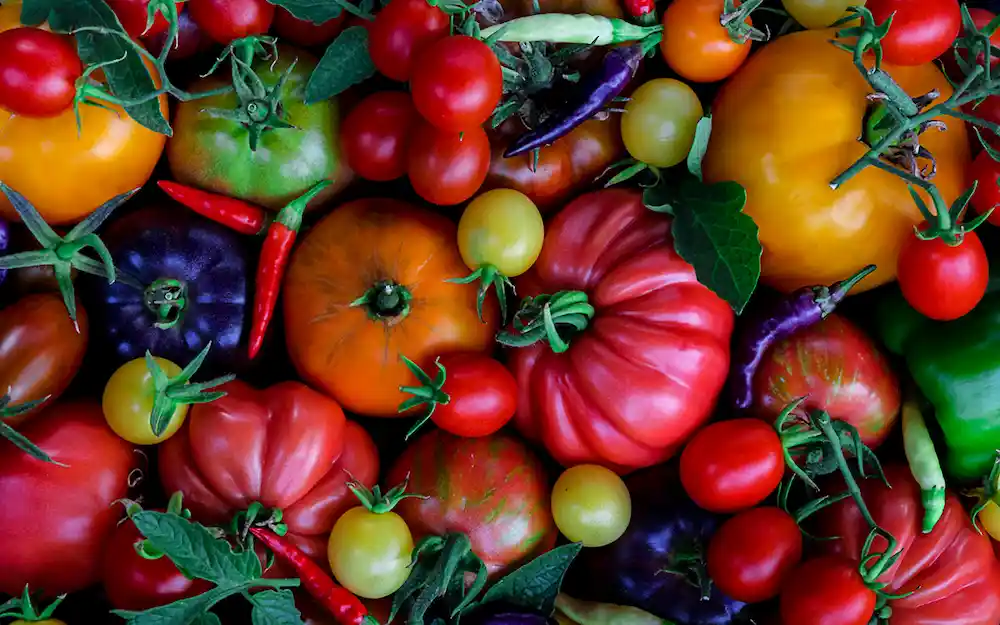Not everyone can benefit from the nutrients found in nightshade herbs. Eating them could be harmful to the health of some of us. If you are a coffee lover, you might be wondering: is coffee a nightshade?
Coffee does not come from the Solanaceae family, and it is not a nightshade. Caffeine and trigonelline are two alkaloids found in coffee. For the same reason that nightshade vegetables are not recommended for persons with autoimmune disorders, coffee should be avoided as well. Some people find that coffee makes them sleep less soundly and even makes them more prone to stress hormones.
What is a Nightshade?

Nightshades are part of the family of plants called Solanaceae.
Plants in the Solanaceae can take the form of:
- Herbs
- Shrubs
- Vines
- Lianas
- Trees
- and sometimes epiphytes.
Alkaloids, which are found in these plants, are organic molecules that include at least one nitrogen atom. It is possible to die from eating certain species of the Solanaceae family.
Even so, there are a few solanaceous plants that are staples in our diet. Here are a few of the most well-known:
- Eggplant
- Tomato
- White and red potatoes
- Paprika
- Bell pepper
- Chili pepper
- Tobacco
- Goji berries
Is Coffee a Nightshade?
Although it shares a name with the nightshade family, coffee is not actually a member of that group. Coffee comes from the Coffea plant, which is in the Rubiaceae family.
There are more than a hundred different types of coffee plants, but Arabica and Robusta are the most common and widely used.
Next, we’ll examine the similarities and differences between coffee and the nightshade plants.
Coffee Compared with Nightshades
The presence of alkaloids in nightshades is the primary reason for their unpopularity.
Caffeine, an alkaloid, is abundant in coffee just as it is in nightshade plants. Additionally, the alkaloid trigonelline is present. Coffee is not an evergreen, and it is not a good choice for those who suffer from autoimmune disorders.
The main reason for this is the caffeine in coffee, which is known to heighten anxiety and prevent restful sleep.
Are Nightshades Safe For Consumption?
In most cases, it is fine to consume leafy greens. They include numerous beneficial components like vitamins, fiber, and carbs.
The nutrients in green leafy vegetables are distinct. Vitamin A and C, as well as the antioxidant lycopene, are abundant in tomatoes. White potatoes are another example of a food that provides a lot of nutrition bang for your buck. Capsaicin and vitamin C can both be found in black peppers.
Many people believe that consuming nightshade vegetables is dangerous because they contain alkaloid chemicals, which might have adverse effects in some individuals. Nightshade vegetables are safely consumed as part of a regular diet in most of the world.
Vegetables in the nightshade family should be avoided by those who suffer from autoimmune disorders. It’s possible that you’re allergic to or sensitive to common nightshade veggies.
To be safe, avoid eating any nightshade veggies until you’ve spoken with a doctor.
The Bottom Line: Is Coffee a Nightshade?
Coffee does not belong to the nightshade family, which includes eggplants and tomatoes, all of which are completely edible. Those who suffer from nightshade-related illnesses or allergies may also be negatively affected by the coffee’s alkaloids.
It’s quite unlikely that the vast majority of people are sensitive to caffeine, so if coffee makes you anxious or tense, you’re in good company. If you don’t get these sensations, though, coffee is safe for daily consumption.
SEE ALSO:

